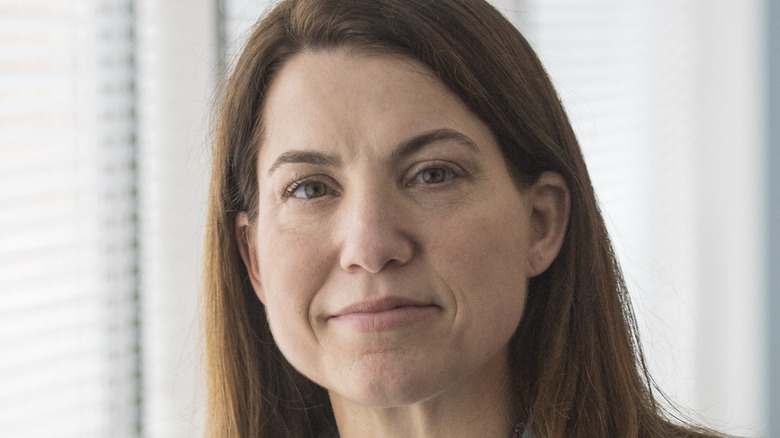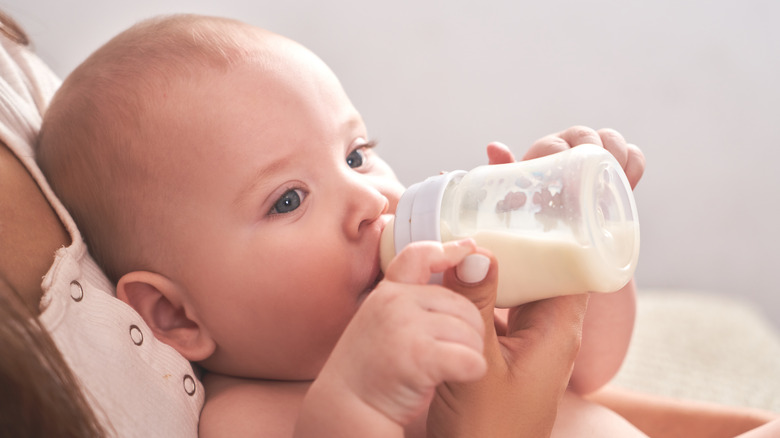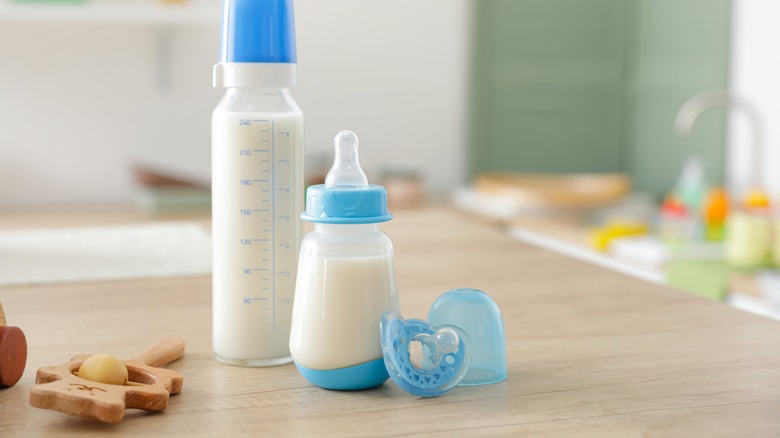Dr. Diane Calello Of New Jersey Poison Control Center Explains Baby Formula Substitutes - Exclusive Interview
Modern baby formula has been a godsend for both parents and their babies. Not all mothers are physically or logistically able to nurse, and commercial baby formula has kept generations of babies in the developed world safely nourished until they're mature enough for regular food — many of the mothers and even grandmothers of today's babies were formula fed as infants. Baby formula became a staple for young families not only because it's convenient and safe (if correctly prepared), but easy to obtain — busy parents of babies could always count on picking up as much as they needed on their regular trips to the grocery store.
This all changed in February, when Abbot Laboratories, which manufactures nearly half the baby formula sold in the U.S. (according to The Guardian), closed one of its factories following a federal investigation into babies suffering infections after consuming its formula. This resulted in widespread shortages of baby formula, sending parents across the country into a panic. Recipes for homemade baby formula or alternatives to baby formula proliferated online, along with conflicting information about the safety and nutritional value of these alternatives. To help sort all this out, Dr. Diane Calello of the New Jersey Poison Control Center at Rutgers New Jersey Medical School shared her advice for parents in an exclusive interview.
Safe and healthy for adults doesn't mean safe and healthy for babies
A lot of substitutions for baby formula have been suggested online, such as goat's milk or soy milk. Why aren't these recommended?
Formula substitutes don't contain essential vitamins and micronutrients. Even if the substance itself is healthy, it won't have adequate amounts of things like calcium, iodine, magnesium, and others that are essential to infant brain development.
What are some of the risks of homemade formula?
Malnutrition is the biggest risk. There are many considerations beyond just calories which make commercial infant formula an appropriate source of nutrition. Homemade formula may lack adequate protein or other essential nutrients. Also, if the formula is either too concentrated or too dilute, the delicate salt and water balance in the infant's body can be disrupted, causing brain and other organ damage.
Have you been seeing many cases of babies sickened by homemade formula?
Fortunately, we are not seeing a lot of these cases right now, although we certainly have in the past.
Here are some safe formula substitutes for short-term, emergency use
If a mom can't nurse and homemade formula isn't safe, what should the family do?
Formula may be available in some retail stores and online. Families should discuss with their pediatrician about other places to obtain scarce infant formula. If an infant usually takes regular formula, and the only product available is a specialized formula (for example, for premature infants), that is safe for the healthy infant. However, if the baby requires a specialized formula that the family cannot obtain, it is vital that they discuss suitable substitutes with their pediatrician before making an assumption. If the child is close to one year of age, it is safe to use toddler formula, or even regular cow's milk. Cow's milk may also be used after six months of age if absolutely necessary, but this should only be done short-term, as infants can develop milk allergies.
The federal government is importing a lot of formula from overseas. Is it safe for families to order formula from abroad online?
Although safe formula is, of course, available outside the United States, these products have not been approved by the FDA. Until that happens, it is best to purchase only products which have been reviewed by a pediatrician and come from a well-known source.
There's been a lot of misinformation online about baby formula substitutes and safety. Can you recommend some sources of reliable, up-to-date information?
This document is from AAP (American Academy of Pediatrics).
For more information about baby formula and safe substitutes, visit the New Jersey Poison Information and Education System's website in English or Spanish.



